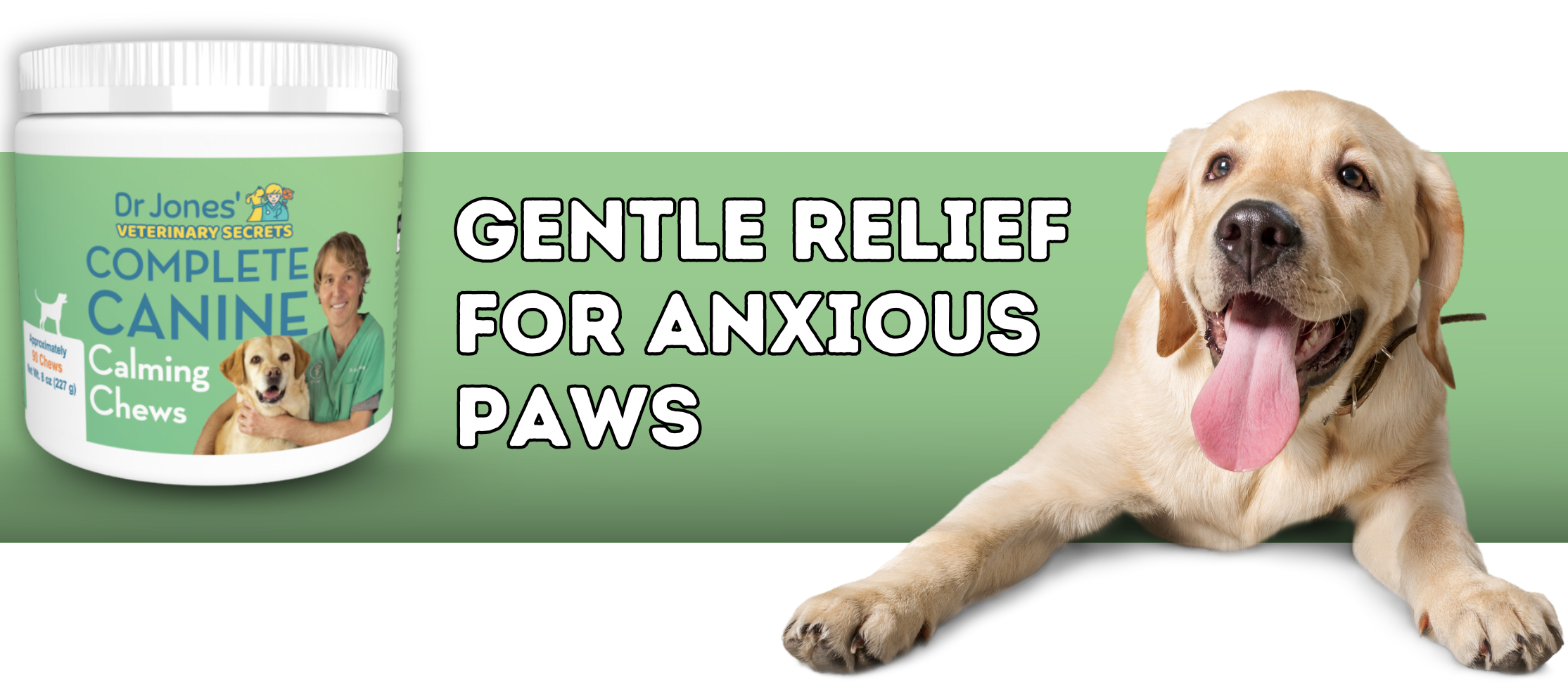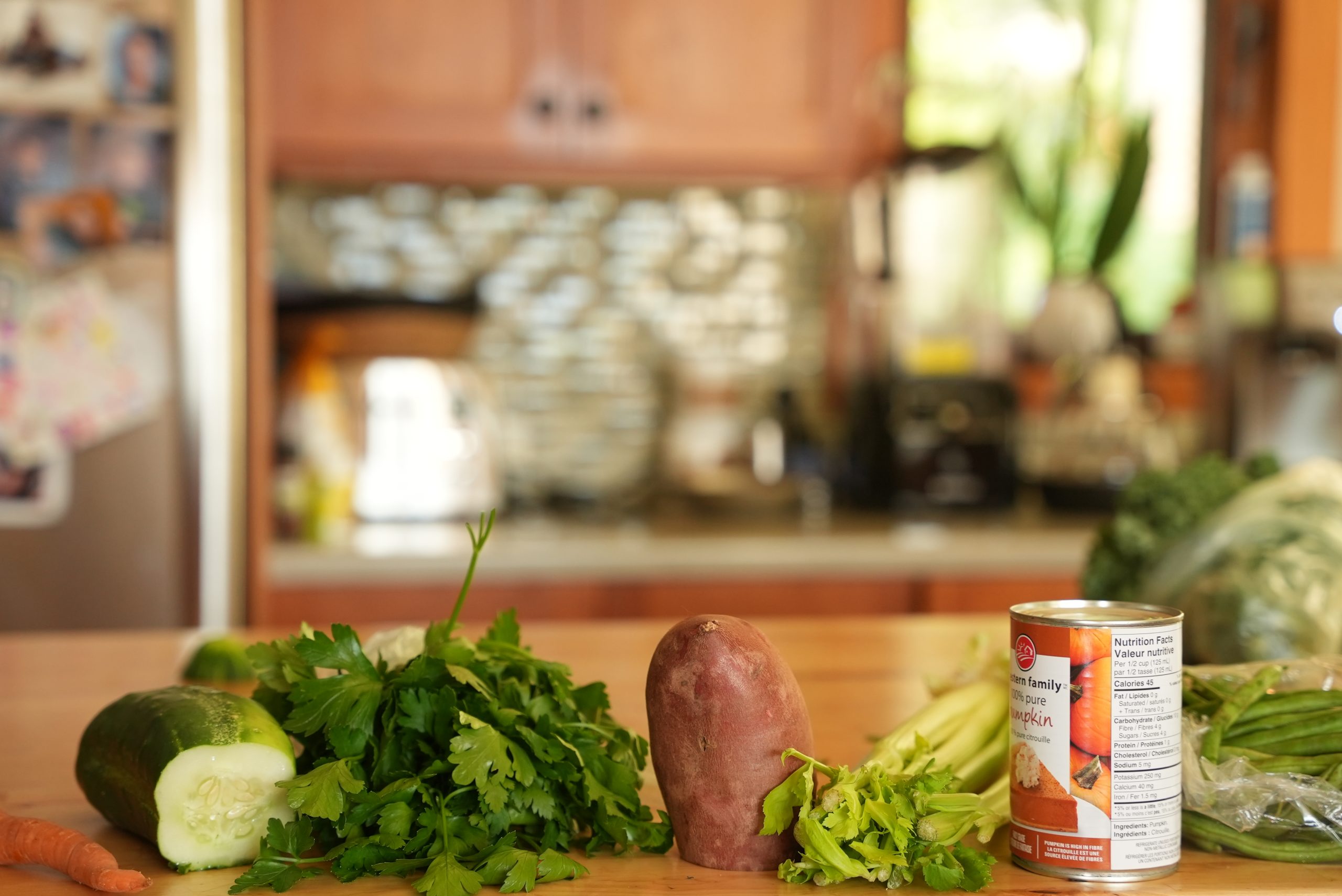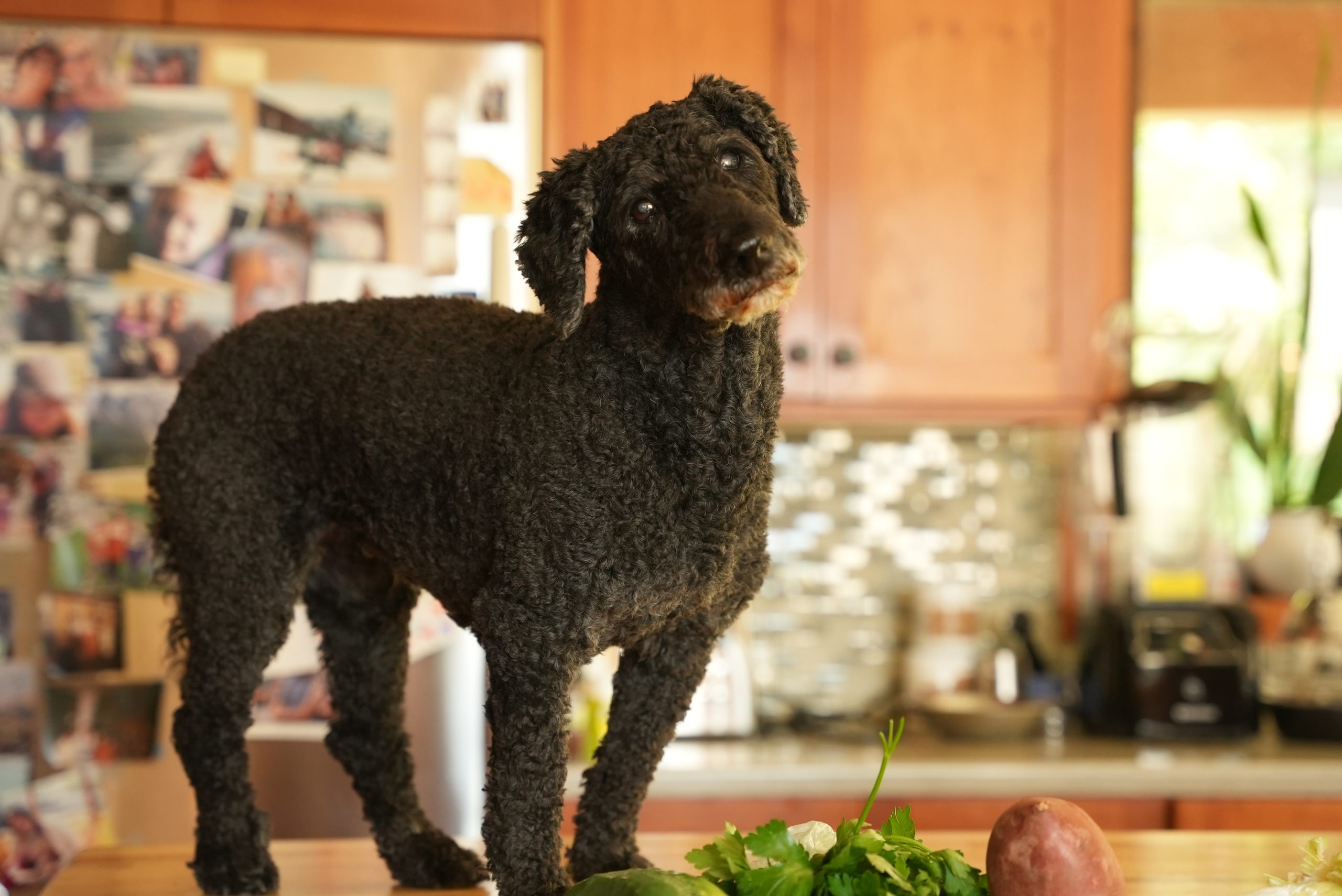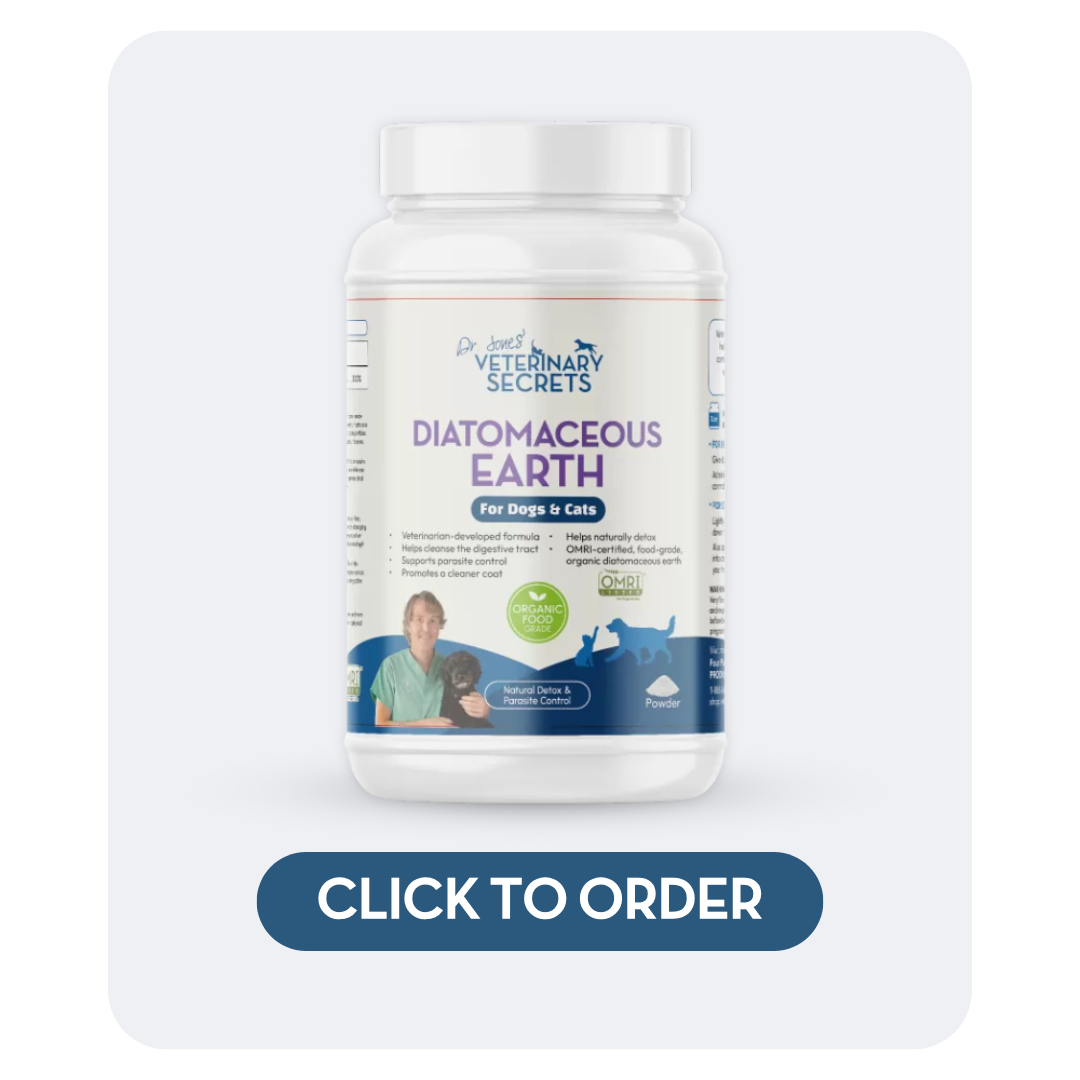Top 7 Vegetables That Are Surprisingly Good for Dogs (+ 3 to Avoid)
![]()
Want to give your dog a healthier, happier life? From carrots and sweet potatoes to parsley and pumpkin, some veggies can do wonders for your dog’s health—but not all are safe in large amounts. In my latest guide, I break down the top 7 veggies every dog can enjoy and the 3 you should feed in moderation.
And while you’re boosting their nutrition, why not support their calm and stress-free side too? Dr. Jones’ Complete Canine Calming Chews (90 Count) are a tasty, all-natural way to help your dog stay relaxed during car rides, vet visits, thunderstorms, or fireworks. Packed with L-theanine, chamomile, passionflower, ginger, valerian, and melatonin, these soft chews make tranquility tasty.
Give your dog the best of health and happiness—inside and out!
Half-Price Alert: Complete Canine Calming Chews Clearance!
While you’re making your home and lawn safer for your pets, don’t forget their stress and anxiety levels. Dr. Jones’ Complete Canine Calming Chews are specially formulated to help your dog stay relaxed and happy, even in a world full of everyday stressors. Right now, we’re running a CLEARANCE SALE—50% OFF. Keep your dog calm, comfortable, and cared for—grab yours before they’re gone!


Top 7 Veggies for Dogs That Boost Health (And 3 You Should Avoid)
Believe it or not, vegetables can offer a ton of health benefits for our dogs—but not every veggie is safe in large amounts. Today, I’m sharing my top seven vegetables that are healthy, safe, and full of nutrients for your dog, plus a few you need to give sparingly.
If you’re interested in natural pet health and wellness, you’re in the right place—make sure to subscribe to Veterinary Secrets for more tips.
1. Carrots – The Cancer-Fighting Crunch
Carrots are nutrient-dense powerhouses. You can offer them raw or cooked, though raw carrots have the added benefit of helping scrape plaque from your dog’s teeth.
The key nutrient here is beta carotene, the flavonoid that gives carrots their orange color. Studies show it has cancer-protective properties. For example, Scottish Terriers, prone to bladder cancer, showed a marked decrease in risk when fed carrots just three times a week.
Feeding tip: About ¼ carrot per 20 lbs of body weight, raw or lightly blanched, three times a week. Safe, healthy, and tasty.
2. Cucumber – Hydrating and Low-Calorie
Cucumbers are super water-dense, keeping your dog hydrated while providing a low-calorie snack. They’re packed with vitamins C, K, and potassium.
Bonus: cucumbers contain phytochemicals that may reduce plaque and improve your dog’s breath.
Feeding tip: Dogs can eat cucumbers freely—no strict limits here.
3. Sweet Potato – The Nutrient Powerhouse
Sweet potatoes are full of vitamin A, vitamin C, B vitamins, fiber, and antioxidants like beta carotene and anthocyanins. They support immunity, cognitive function, skin health, and digestive regularity.
Feeding tip: Cooked sweet potato, about ¼ cup per 20 lbs daily, 2–3 times per week. Adjust dog food portions to maintain balance.
4. Celery – Crunchy and Dental-Friendly
Celery keeps dogs hydrated, provides vitamins A, C, potassium, and has a natural abrasive quality to help clean teeth.
Feeding tip: Cut into small pieces. Start small, e.g., 1/8 of a stalk for smaller dogs, but larger dogs can enjoy more. Always wash and, ideally, use organic.
5. Green Beans – Fiber-Rich Super Snack
Green beans are low-calorie, high-fiber, and packed with vitamins A, C, K, iron, and calcium. They help maintain healthy bowel movements and can even aid in weight management.
Feeding tip: A few green beans per day is fine. Too many may cause loose stools due to high fiber content.
6. Pumpkin – The Gut-Friendly Veggie
Pumpkin is high in fiber, vitamins A, C, E, minerals like iron and potassium, and beta carotene. It supports gut health, weight management, and a healthy microbiome.
Feeding tip: Start small—1 teaspoon per 10 lbs of canned pumpkin daily. Cooked or plain canned pumpkin is best, no additives.
7. Parsley – Fresh Breath and Gentle Diuretic
Parsley is rich in vitamins A, C, K, calcium, and iron, and has antioxidant and anti-inflammatory properties.
Benefits:
-
Acts as a gentle natural diuretic (useful for urinary health or mild fluid retention)
-
Can help reduce bad breath thanks to antimicrobial compounds
Feeding tip: About 1 teaspoon per 10 lbs daily. I often mix it with a little coconut oil to make it more palatable.
Bonus: Dandelion Leaves – Nutrient-Dense and Free
Dandelion leaves are packed with vitamins A, C, E, K, minerals, and antioxidants. They’re natural diuretics and may help support immunity.
Feeding tip: Chop finely and sprinkle 1 teaspoon per 10 lbs over your dog’s food. Free and incredibly healthy!
Veggies to Feed in Moderation
Some vegetables provide benefits but can cause issues if fed in large amounts:
-
Broccoli: Contains isothiocyanates that may upset digestion in high amounts.
-
Kale & Spinach: High in calcium oxalate, which can contribute to urinary stones if fed too much.
Tip: Small amounts occasionally are fine, but don’t feed daily.
Final Thoughts
Vegetables can be an amazing way to support your dog’s health naturally. Focus on safe, nutrient-dense options, introduce new veggies slowly, and always use clean, organic produce when possible.

Want to learn more about natural ways to keep your dog healthy? Subscribe to Veterinary Secrets and grab my free book for more tips!
Click to Get A Free Copy of My E-Book!

Half-Price Alert: Complete Canine Calming Chews Clearance!
While you’re making your home and lawn safer for your pets, don’t forget their stress and anxiety levels. Dr. Jones’ Complete Canine Calming Chews are specially formulated to help your dog stay relaxed and happy, even in a world full of everyday stressors. Right now, we’re running a CLEARANCE SALE—50% OFF. Keep your dog calm, comfortable, and cared for—grab yours before they’re gone!















What 3 to avoid?
three vegetables to avoid or use with caution for dogs are:
Onions (and related alliums)
Raw garlic
Raw parts of mushrooms (non-dog-safe mushrooms)
Beautiful!!!! We are so lucky to have you help us.
My dog is diabetic and we’ve spent thousands of money on him. They keep pushing his insulin up and having us get bags of food that cost over $70 every other week. The vet told us he has about a year if that left. He is 11 Corgi mix and I feel like there has to be something we can do to both help his glucose issues as well as the other issues that have risen: rotting teeth, damaged stomach, sick liver and high protein in his kidneys.
The vegetables listed can help support fiber, vitamin and mineral intake, and weight control (important in diabetes and kidney/liver support).
For diabetes: Low-calorie, high-fibrous veggies (e.g., green beans, cucumbers) are good.
For kidney/liver damage: You’ll have to be especially careful with vegetables that contribute oxalates or high levels of certain minerals. The article warns about spinach/kale which may be problematic.
For dental/stomach issues: Soft cooked vegetables like pumpkin may be easier to manage than raw crunchy treats.
This is not a replacement for his prescribed insulin, veterinary diet, or targeted therapy – it’s a supportive measure.